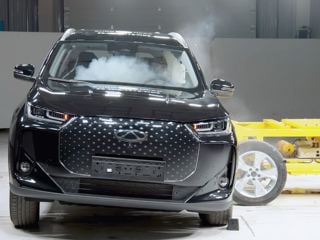UK automotive executives expect that more than half of today’s car owners will not want to own a car in less than a decade - but 85% are unfazed by the prospect.
According to the results of KPMG’s Global Automotive Executive Survey 2017, 74% of UK automotive executives think that self-driving technology and mobility as a service will take priority by the year 2025, with many motorists turning their back on vehicle ownership.
John Leech, UK Head of Automotive at KPMG, said: “The UK is particularly suited to the early adoption of self-driving cars consumed as a service.
“Our greenbelt policy has created a relatively dense urban population which, when coupled with our high fuel prices, means that so-called ‘robot taxis’ offer a greater cost saving to the UK public, compared to European or North American markets.
“I believe robot taxis will revolutionise UK urban transportation in the second half of the next decade.”
KPMG’s report revealed that 62% of UK automotive executives already view diesel technology as a thing of the past, expecting the traditional powertrain technology to eventually vanish from the manufacturers’ portfolio.
Furthermore, 93% of UK automotive executives are planning to invest in the technology for battery electric vehicles over the next five years, the report revealing that 90% expect battery electric vehicles to dominate the automotive marketplace by 2025.
“Improvements in the cost and range of battery technology, coupled with growing concern over the emission of both carbon dioxide and nitrogen oxides from diesel engines, means that almost the whole automotive industry believes that the mass adoption of electric cars will happen during the next decade,” said Leech.
Despite the inherent profit risk posed by a dramatic cut in the number of vehicle owners, what would undoubtedly prove an alarming trend for a violume-driven retail network seems to leave manufacturers unfazed.
KPMG found that 85% of respondents said they are convinced that their company will generate higher revenues by providing new digital services, than selling cars alone.
Leech said: “Today carmakers already make substantial profits from the sale of consumer finance and annual vehicle insurance but this will grow in the future as innovative services such as remote vehicle monitoring and the integration of the car as a focal point in people’s ever more connected lifestyles are demanded by consumers.
“For the auto industry this implies that pure product profitability is outdated. Carmakers’ success will not be evaluated solely on the quantity of vehicles sold, but on the customer value over the whole lifecycle – especially when the digital ecosystem will be ready for the market.
“So OEMs need to rethink. More than three out of four executives believe that one connected car can generate higher revenues over the entire lifecycle than 10 non-connected cars.”



















Lenin - 12/01/2017 14:44
'One connected car can generate higher revenues over the entire lifecycle than 10 non-connected cars'... Wow! As a customer why would this incentivise me to be fully connected now that I know it could cost me 10 times more?